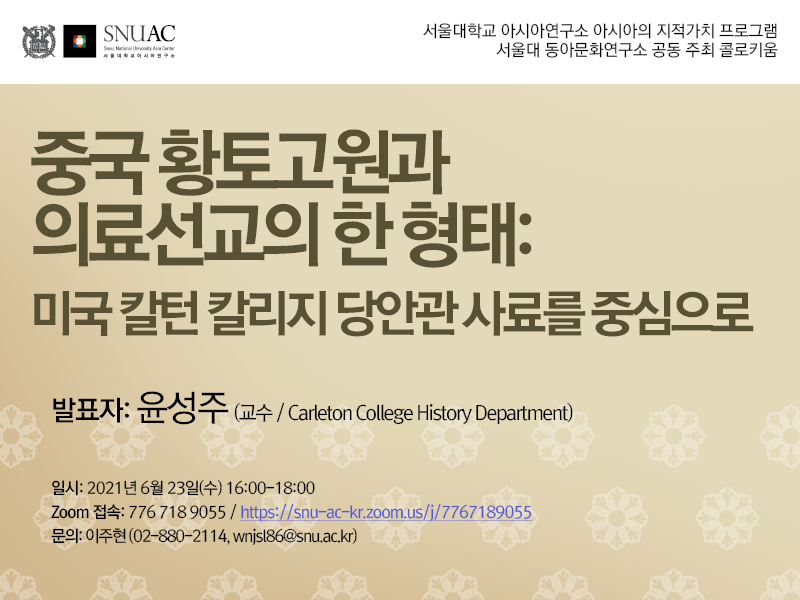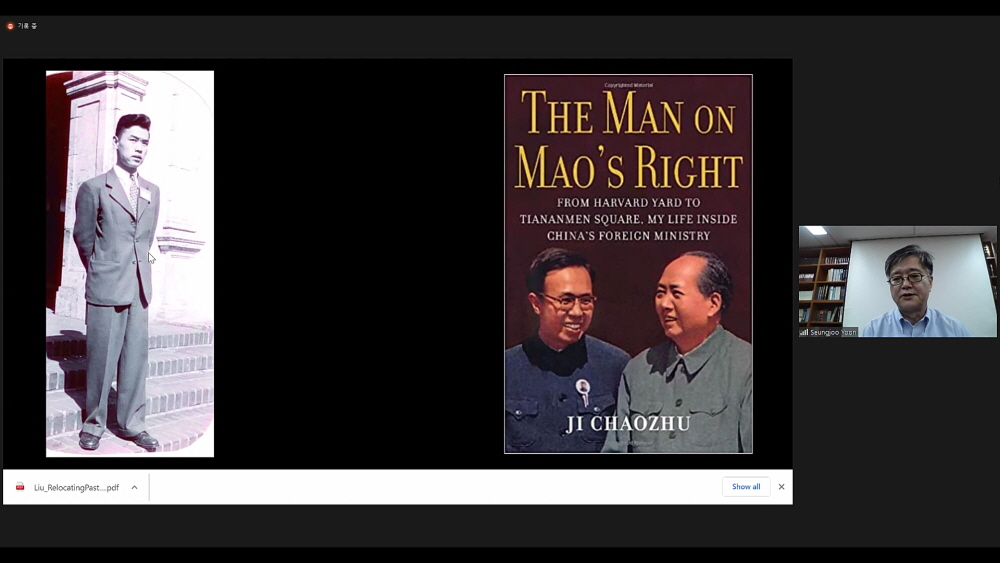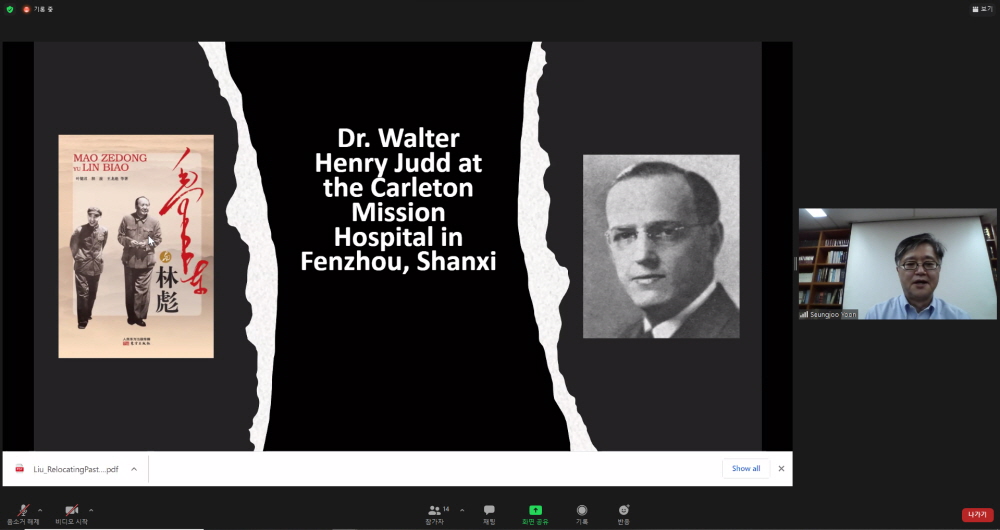Start
2021년 6월 23일 - 4:00 pm
End
2021년 6월 23일 - 6:00 pm

Over the years when I am conducting research at the Carleton College Archives in Minnesota USA, I have come to realize how rich a connection a small liberal college like Carleton established to the North China Plain in the early part of the twentieth century, especially from the 1930s through 1950s. It was the period when the Carleton-in-China program (succeeding its preceding programs from the early 1900s) became deeply enmeshed with competing medical regimes that penetrated the rapidly militarizing region in inland China. Such a competition involved not just the expanding Japanese empire and its colonies (Taiwan, Korea, and Manchuria) but also selective receptivity to biomedicine of the western countries. The period also witnessed Carleton setting up its mission in the area (an elite middle school and a modern hospital, 1907-1949) where the school’s representatives taught English and practiced biomedicine. While such endeavors unmistakably initiated a colonial, and by extension, post-colonial, encounter between Carleton representatives and their Chinese hosts in the venue society, I find the earlier signs of the Cold War orientation were not necessarily palpable in the region and the period we are examining. In other words, such a value orientation became consolidated only during the course of the military confrontation on the Korean peninsula (aka., the Korean War). I hope this paper presentation will open an important venue by which I can connect Carleton’s recent medical (and educational) mission to the origins of the Cold War in East Asia. I argue that we can gain a better understanding of the origins of the Cold War when we give due attention to the transwar continuity and breaks. Put it another way, I contend that the college’s deep involvement and investment in East Asia came to shape the keys to the postwar order in the region and beyond.
발표자: 윤성주 / 교수 / 미국 Carleton College History Department
2017-2020, Chair, History Department, Carleton College
2006-Present, Associate Professor of History, History Department, Carleton College
1999-2006, Assistant Professor of History, History Department, Carleton College
2003-2005, Director, East Asian Studies, Carleton College
2002-2003 Visiting Professor, The Fairbank Center for Chinese Studies, Harvard University
2002 (summer & fall) Visiting Scholar, Central China Normal University, Wuhan & The Institute of Modern History, Peking.
1999 Ph. D. in History, Harvard University
Field: Modern China and East Asian History.
General Examination Fields: China from 1750 to the Present; China from 700 to 1750; Russia from 1600 to the Present; & International Relations from 1648 to the Present
1992 A.M. in Regional Studies-East Asia, Harvard University with Joseph Fletcher Memorial Prize. Field: Society and Government of Modern China
1989 B.A. in History, cum laude, Seoul National University, Seoul, Korea.
Photo
Review
6월 23일, 서울대학교 아시아연구소 ‘아시아의 지적가치 프로그램’ 콜로키움에서는 <중국 황토고원과 의료선교의 한 형태: 미국 칼턴 칼리지 당안관 사료를 중심으로>를 주제로 Carleton College 윤성주 교수의 발표가 있었다. 의료선교의 ‘의학 전파’에 대한 관점은 크게 일방적인 전파(Diffusionist)로 보는 입장과, 상호 공존·착종(Bifurcated)되는 현상으로 보는 입장으로 나누어볼 수 있다. 발표는 화북평원(North China Plain)의 Carleton Mission의 사례를 중심으로, 칼턴 칼리지 중국선교부 의사록, 미국공리회 펀조우 선교기지 보고서, 퍼시 왓츤 의료 저널, 류다펑 일기 등 다양한 사료를 통해 중의학과 서양 생의학이 후자의 ‘상호 공존(Bifurcated)’에 가깝다는 논지를 바탕으로 진행되었다. 이에 ‘중의학은 미신이며, 생의학은 과학’이라는 사고관이 일방적으로 중국사회를 주도하게 되었다기보다는, 의료선교를 위해 학적인 체계를 넘어 상호 신뢰를 형성하는 과정에서 서로 영향을 주고받았음이 논의되었다. 논의는 사료 분석에 그치지 않고, 의료선교의 맥락을 바탕으로 어떻게 동아시아 질서가 어떻게 냉전질서의 소용돌이에 휘말리게 되는가에 대해 추론하는 데까지 이어졌다. ‘의료선교’의 사례를 역사적, 사회적 의미 체계 속에서 검토한 오늘의 발표가 코로나바이러스로 인해 국제적 불안정성이 늘어나고 협력의 필요성이 증대되는 현대사회에 많은 시사점을 제공해주리라 기대한다.
글, 사진 | 김재성(학술기자단, 연구연수생 14기)






